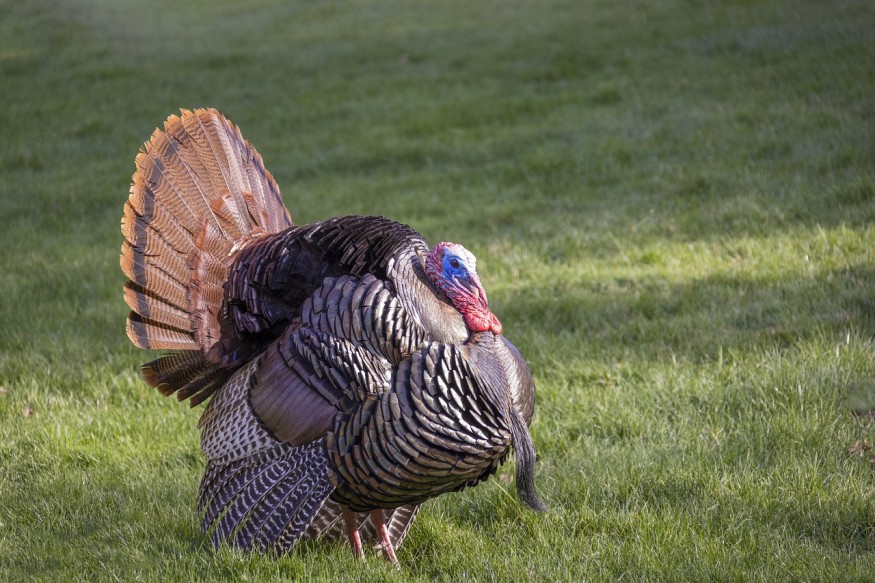Nearly two dozen wild turkeys seem to have gotten a little interested in space exploration as they flock at NASA's Ames Research Center in California where scientists work on discovering exoplanets and developing flight technology.
NASA Ames spokesperson told Space.com that although the birds pose minimal impact to the NASA community, they have called the California Department of Fish and Wildlife and the US Department of Agriculture (USDA) to relocate them to an ecological reserve in Santa Clara to roam freely.

Wild Turkeys Wreaking Havoc at NASA Research Center in California
Wild turkeys are reportedly rooting at Ames and wreaking havoc around the research center. Officials said that the animals are stopping traffic, pecking at cars and windows, and posing threat to aircraft operations.
Ken Paglia from the California Department of Fish and Wildlife said that male turkeys are most notably causing problems as they are their mating season. He explained that male turkeys during this time can be a bit aggressive and could charge after people sometimes.
Marilee Jooste, a visitor at the research center who had only spent an hour on-site, told ABC7 News that the wild turkeys are easily noticeable due to their huge size that makes them stand out.
"They're huge! They're huge and there are a lot of them," Jooste said. "I drove past them and they kind of stared me down."
NASA Teams Up With Agencies to Relocate Wild Turkeys
Ames teams up with federal, state, and local agencies to trap and relocate the wild turkeys before they begin nesting and hatch their eggs. According to The Guardian, they plan to slowly lure the turkeys into a trap using corn or a similarly tempting turkey snack and drive them to the San Antonio Valley ecological reserve.
Wildlife officials will up a walk-in trap once the wild turkeys begin to congregate in that area for a few days in a row and tempt them again with food. USDA spokesperson Tanya Espinosa said that the corralled turkeys will have their blood drawn, get oral and cloacal swabs, and be placed inside boxes.
Experts remind the public to avoid feeding the turkeys because it interrupts their trapping and relocation efforts. Espinosa said that feeding wild turkeys makes them associate humans with food and tend to become aggressive in their search for a meal.
NASA said that the birds are being removed for the safety and wellbeing of turkeys and the Ames community and workforce, as well as to allow them to roam freely.
Wild Turkey Nesting Season
Space.com reported that NASA is especially concerned with the timing of the appearance of wild turkeys in the area as the birds are due to begin their nesting season soon.
According to National Wild Turkey Federation (NWTF), the breeding behavior of wild turkeys is primarily triggered by the increasing day length during spring. More so, unusually warm or cold spells could accelerate or slow down their breeding activity.
Hens also become secretive while they search for a good site to nest prior to laying eggs. Wild turkeys can lay between 10-12 eggs within a two-week period and will sit on them quietly to incubate the eggs for 26-28 days.
RELATED ARTICLE: Ten Unknown Secrets About the Star of Thanksgiving Dinner-Turkeys
Check out more news and information on Turkey in Science Times.
© 2025 ScienceTimes.com All rights reserved. Do not reproduce without permission. The window to the world of Science Times.











